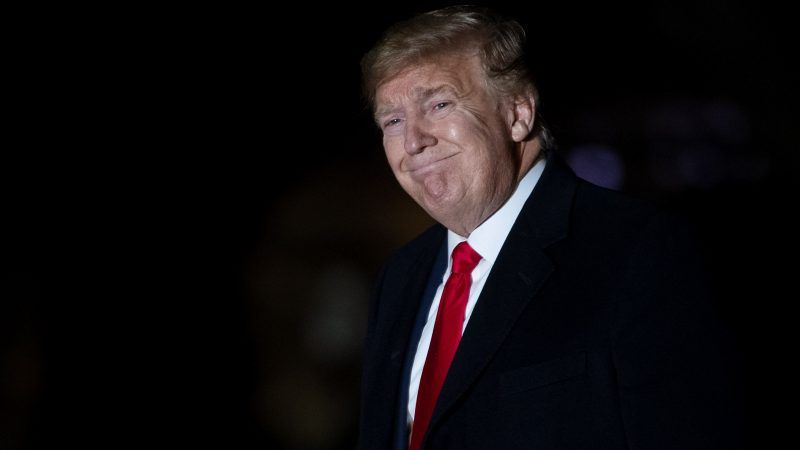Trump Campaign Files Libel Lawsuit Against The New York Times
Trump has long complained that libel laws need to be loosened to allow more lawsuits against media outlets.

President Donald Trump's reelection campaign filed a libel lawsuit against The New York Times today alleging that an opinion piece in the paper on Russian interference in the 2016 presidential election defamed the campaign.
The lawsuit is another escalation in Trump's longstanding fight against the press, which he calls "fake news" and "the enemy of the people." The lawsuit concerns an opinion piece written by Max Frenkel and published in the newspaper on March 27, 2019. In that piece, headlined "The Real Trump-Russia Quid Pro Quo," Frenkel, who is not named in the suit, writes that there was "no need for detailed electoral collusion between the Trump campaign and Vladimir Putin's oligarchy because they had an overarching deal: the quid of help in the campaign against Hillary Clinton for the quo of a new pro-Russian foreign policy, starting with relief from the Obama administration's burdensome economic sanctions."
The Trump campaign's lawsuit, filed in New York state court, claims that The New York Times published the claims of collusion despite "knowing them to be false, and knowing it would misinform and mislead its own readers, because of The Times' extreme bias against and animosity toward the Campaign, and The Times' exuberance to improperly influence the presidential election in November 2020."
Trump has repeatedly opined that libel laws need to be "opened up" to remove the strong protections that news outlets have enjoyed from defamation lawsuits since the landmark 1964 Supreme Court case New York Times v. Sullivan.
On the 2016 campaign trail, Trump said, "I'm going to open up our libel laws so when they write purposely negative and horrible and false articles, we can sue them and win lots of money. We're going to open up those libel laws. So when The New York Times writes a hit piece which is a total disgrace or when The Washington Post, which is there for other reasons, writes a hit piece, we can sue them and win money instead of having no chance of winning because they're totally protected."
In 2018, Trump once again said his administration would take "a strong look" at libel laws after his erstwhile personal lawyer, Michael Cohen, filed a defamation lawsuit against BuzzFeed News for publishing a dossier full of salacious claims about the president. "Our current libel laws are a sham and a disgrace and do not represent American values or American fairness," Trump said.
Trump has also threatened to sue news outlets many times over supposedly unfair news coverage, such as when The New York Times interviewed two women who accused him of unwanted sexual advances.
The most recent lawsuit was filed by Charles Harder, an attorney who has represented Trump before. He sent a laughable letter last October to CNN threatening to sue the network for false advertising for calling itself "the most trusted name in news." He also represented Hulk Hogan in the former wrestling star's successful privacy lawsuit against Gawker, which effectively killed the website.
In an emailed statement, a spokesperson for The New York Times said the Trump campaign "has turned to the courts to try to punish an opinion writer for having an opinion they find unacceptable."
"Fortunately, the law protects the right of Americans to express their judgments and conclusions, especially about events of public importance," the statement continued. "We look forward to vindicating that right in this case."


Show Comments (221)